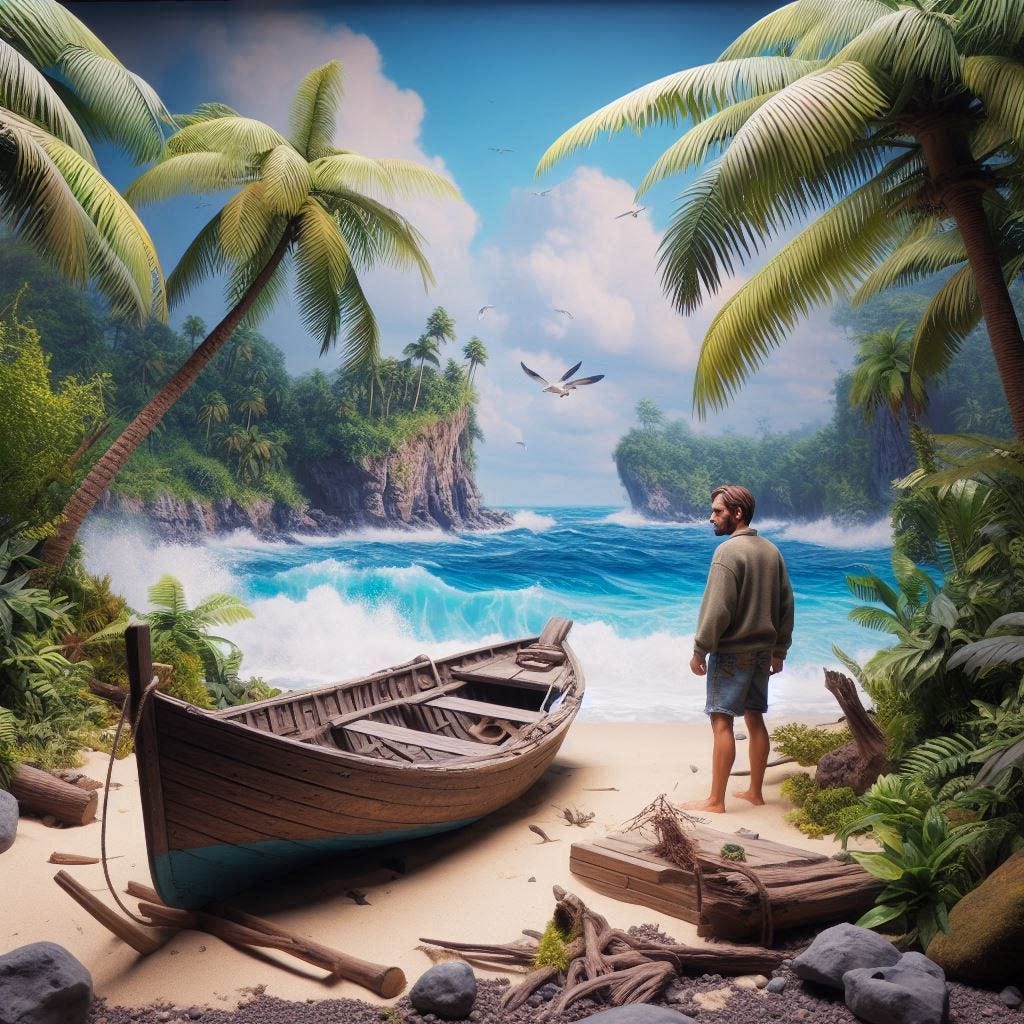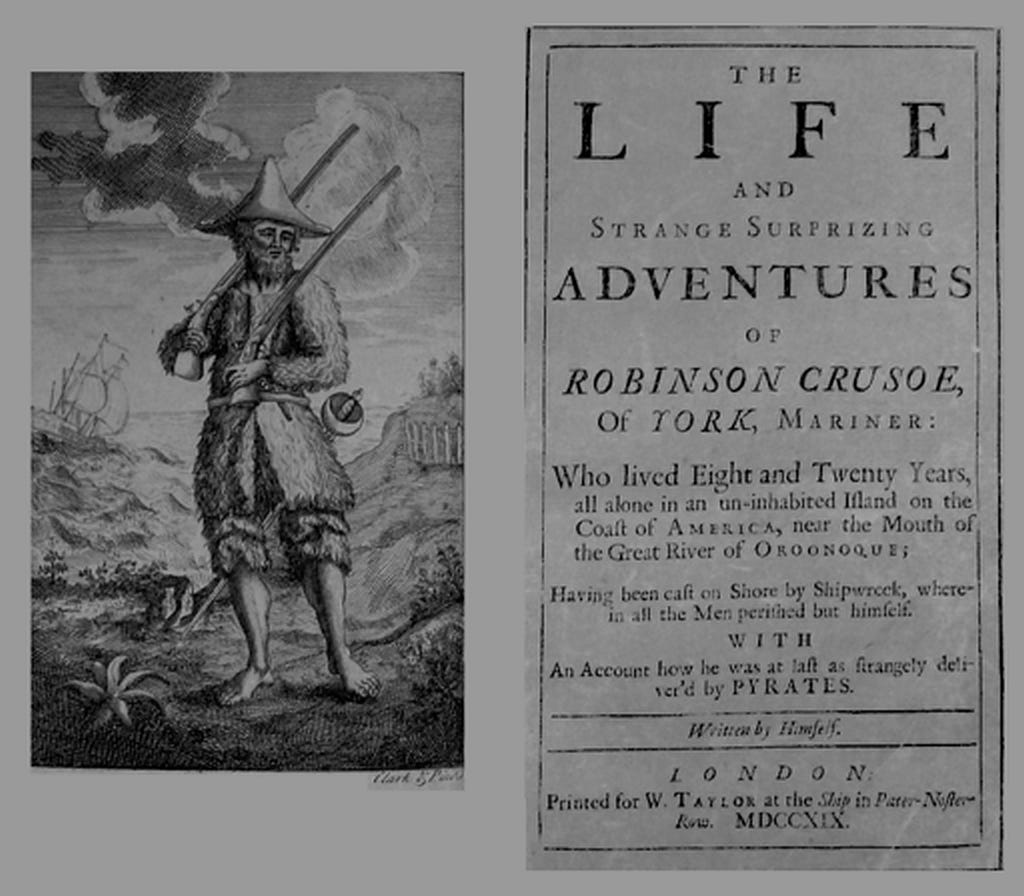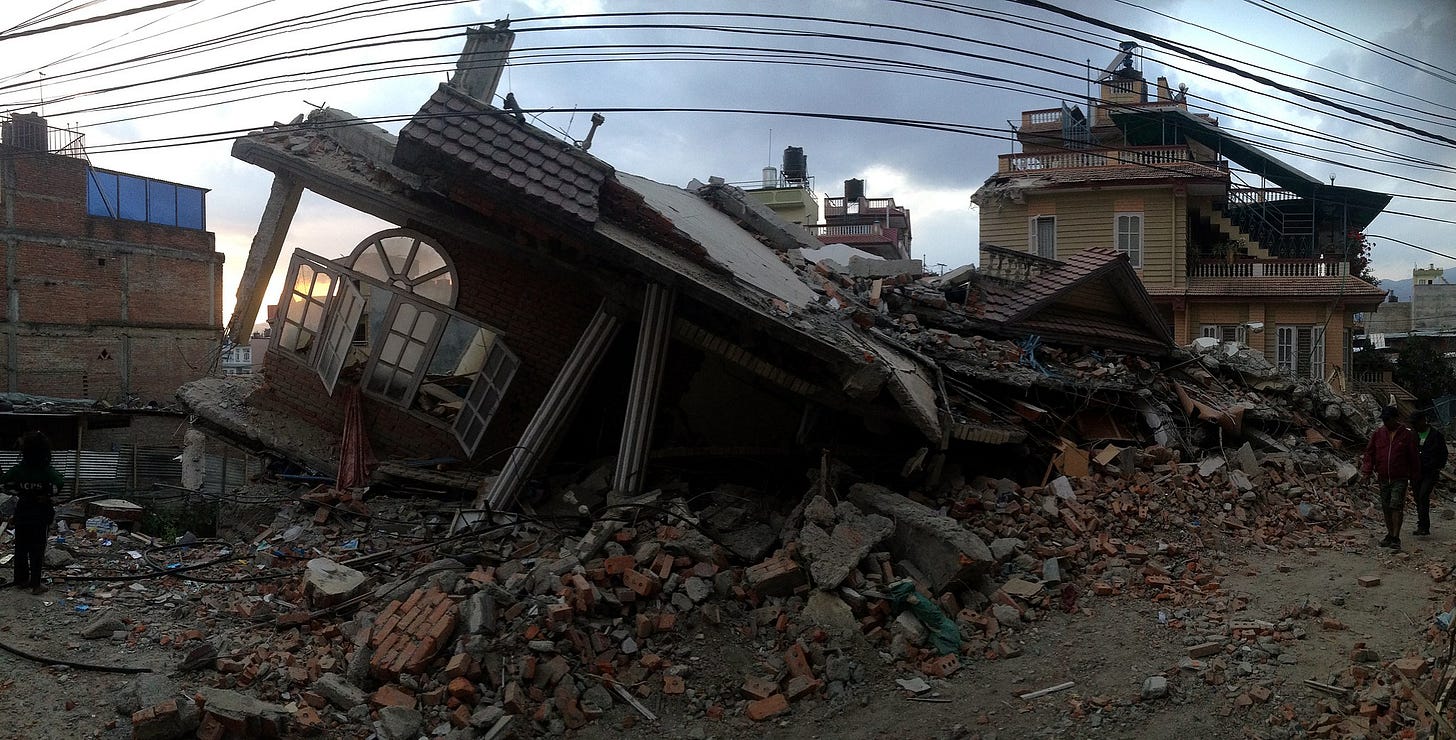The Mysteries of History (April 25 Edition)
Robinson Crusoe; Manhattan Project; Nepal Earthquake
1719 — Defoe’s Crusoe Published
image generated using Bing Image Creator
Almost one hundred years after Cervantes’ Don Quixote and more than 300 years ago, Daniel Defoe’s (1660-1731) fictional-but-based-on-reality novel The Life and Strange Adventures of Robinson Crusoe was published.
Although fictionalized, the story is based on that of Scottish sailor Alexander Selkirk. One of the ways in which Defoe exaggerated Selkirk’s experience was Defoe has Crusoe spend 28 years alone on a deserted island, whereas Selkirk was only marooned for four years
Defoe wrote mostly on politics in his earlier life, including the 1709 work The History of the Union of Great Britain, and had also been a spy; he didn’t try his hand at fiction until he was in his 60s. Defoe also wrote the novel Moll Flanders, among other works.
Questions: Have you ever read Robinson Crusoe? What is the oldest book you’ve ever read? What is the most-recently-published book you’ve read so far? What is your favorite novel you’ve ever read? What is your favorite nonfiction book? Which book would you like to see made into a movie? Who would you want to play the various roles?
1945 — Truman Learns to Love the Bomb
public domain image from wikimedia commons
On this date in 1945, as American and Russian armies met less than 100 miles from Berlin, signaling that the die was cast for the Nazis — that the allies were on the verge of victory while the axis powers were doomed to defeat — newly installed U.S. President Harry Truman (due to FDR’s death) first found out about The Manhattan Project, the plan to create an atomic bomb for possible use in the ongoing Second World War.
Truman wrote in his diary that he had been informed of the making of a bomb powerful enough to destroy the whole world. He then had to decide what to do with it. Truman was told that Russia could have a similar bomb within four years.
While the portion of World War 2 being fought in Europe was quickly coming to an end (Mussolini would be strung up three days later, on April 28, and Hitler would violently concede defeat by committing suicide two days after that), it was still raging in other parts of the world, most specifically American forces fighting Japanese forces.
public domain images from wikimedia commons
Questions: What do you imagine your reaction would have been if you had been alive in 1945 on hearing the news about the atomic bombs being used on Japan? How would your reactions differ based on whether you were American, Japanese, Russian, German, or any other ethnicity?
2015 — 7.8 Nepal Earthquake
public domain image from wikimedia commons
Ten years ago today, Nepal suffered its worst earthquake in over 80 years. The death toll was almost 9,000. Another 16,800 were injured. Besides “the big one,” there were also hundreds of aftershocks. In fact, one of those registered 7.3 on the Richter scale. The quake even caused an avalanche on Mt. Everest, which resulted in the deaths of 19. Over one million homes were destroyed or damaged, displacing 2.8 million people.
Questions: Have you ever been to Nepal? If not, what is the closest you have gotten to it? Would you climb Mt. Everest if you had the chance?
Read about “The Secret Lives of Kids” here.











